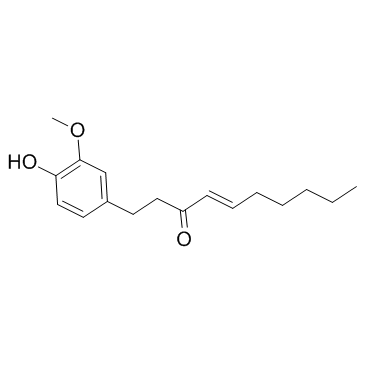Enhanced CD36 expression changes the role of Nrf2 activation from anti-atherogenic to pro-atherogenic in apoE-deficient mice.
Hirotaka Sawada, Yoshiro Saito, Noriko Noguchi
文献索引:Atherosclerosis 225(1) , 83-90, (2012)
全文:HTML全文
摘要
Oxidative stress has been implicated as a causative factor of atherosclerosis. Defense systems against oxidative stress are maintained by radical scavenging antioxidants and/or by regulating the expression of antioxidant genes by activating oxidative stress-sensitive transcription factor: nuclear factor (erythroid-derived 2)-like 2 (Nrf2). We investigated the anti-atherogenic effects of three synthesized compounds (shogaol A: radical scavenging antioxidant activity; shogaol N: Nrf2-activating activity; shogaol N + A: both activities) and curcumin (both activities) in apolipoprotein E (apoE)-deficient mice. We expected compounds with both activities to have additive or synergistic anti-atherogenic effects; however, atherosclerosis was exacerbated significantly by curcumin and slightly by shogaol N + A. Shogaol A, shogaol N, and shogaol N + A showed no significant effect on atherosclerosis development. Immunohistochemical analysis of the aorta revealed that expression of CD36, an Nrf2-regulated gene, was strongly induced by treatment with curcumin. The total antioxidant capacity of plasma collected from mice administered the three compounds was evaluated using a hydrophilic probe, pyranine. Shogaol N or shogaol N + A significantly enhanced the antioxidant capacity of plasma, whereas shogaol A and curcumin did not show this activity. The concentrations of the three shogaol derivatives in plasma were similar (approximately 100 nM), while that of curcumin was much lower. These results suggest that plasma antioxidant capacity is maintained at high levels via Nrf2 activation and that CD36 expression enhances atherosclerosis development.Copyright © 2012 Elsevier Ireland Ltd. All rights reserved.
相关化合物
| 结构式 | 名称/CAS号 | 分子式 | 全部文献 |
|---|---|---|---|
 |
6-姜烯酚
CAS:555-66-8 |
C17H24O3 |
|
Update on the chemopreventive effects of ginger and its phyt...
2011-07-01 [Crit. Rev. Food Sci. Nutr 51(6) , 499-523, (2011)] |
|
In vitro antioxidant and anti-inflammatory activities of 1-d...
2012-11-15 [Food Chem. 135(2) , 332-7, (2012)] |
|
6-Shogaol inhibits breast and colon cancer cell proliferatio...
2013-08-09 [Cancer Lett. 336(1) , 127-39, (2013)] |
|
Effects of [6]-shogaol on cholinergic signaling in HT22 cell...
2012-05-01 [Food Chem. Toxicol. 50(5) , 1454-9, (2012)] |
|
Effects of ginger constituents on the gastrointestinal tract...
2011-07-01 [Planta Med. 77(10) , 973-8, (2011)] |